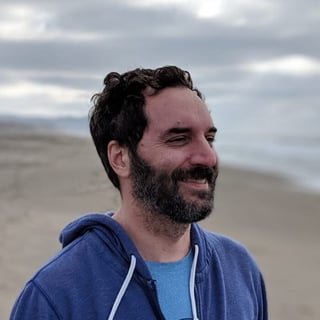Two Tools to get you 90% Operational ML, The Future of ML and Data Platforms
Speakers

David leads works in the Azure Innovation Office on Machine Learning. This means he spends most of my time helping humans to convince machines to be smarter. He am only moderately successful at this.
Previously, he led product management for Kubernetes on behalf of Google, launched Google Kubernetes Engine, and co-founded the Kubeflow project. He has also worked at Microsoft, Amazon and Chef and co-founded three startups.
When not spending too much time in service of electrons, he can be found on a mountain (on skis), traveling the world (via restaurants) or participating in kid activities, of which there are a lot more than he remembers than when he was that age.

Mike is the co-founder of Tecton, where he is focused on building next-generation data infrastructure for Operational ML. Before Tecton, Mike was the PM lead for the Uber Michelangelo ML platform. He was also a product manager at Google where he managed the core ML systems that power Google’s Search Ads business.

Willem Pienaar, CTO of Cleric, is a builder with a focus on LLM agents, MLOps, and open-source tooling. He is the creator of Feast, an open-source feature store, and contributed to the creation of both the feature store and MLOps categories.
Before starting Cleric, Willem led the open-source engineering team at Tecton and established the ML platform team at Gojek, where he built high-scale ML systems for the Southeast Asian Decacorn.

At the moment Demetrios is immersing himself in Machine Learning by interviewing experts from around the world in the weekly MLOps.community meetups. Demetrios is constantly learning and engaging in new activities to get uncomfortable and learn from his mistakes. He tries to bring creativity into every aspect of his life, whether that be analyzing the best paths forward, overcoming obstacles, or building lego houses with his daughter.
SUMMARY
The MLOps tooling landscape is confusing. There’s a complicated patchwork of products and open-source software that each cover some subset of the infrastructure requirements to get ML to production. In this session - we’ll focus on the two most important platforms: model management platforms and feature stores. Model management platforms such as Kubeflow help you get models to production quickly and reliably. Feature stores help you easily build, use, and deploy features. Together, they cover requirements to get models and data to production - the two most important components of any ML project. In this panel discussion, we’ll be joined by David Aronchick (Co-Founder of Kubeflow), Mike Del Balso (Co-Founder of Tecton) and Willem Pienaar (Creator of Feast). These experts will share their perspective on the challenges of Operational ML and how to build the ideal infrastructure stack for MLOps. They’ll talk about the importance of managing models and data with the same engineering efficiency and best practices that we’ve been applying to application code. They’ll discuss the role of Kubeflow, Feast and Tecton, and share their views on the future of MLOps tooling., The MLOps tooling landscape is confusing. There’s a complicated patchwork of products and open-source software that each cover some subset of the infrastructure requirements to get ML to production. In this session - we’ll focus on the two most important platforms: model management platforms and feature stores. Model management platforms such as Kubeflow help you get models to production quickly and reliably. Feature stores help you easily build, use, and deploy features. Together, they cover requirements to get models and data to production - the two most important components of any ML project. In this panel discussion, we’ll be joined by David Aronchick (Co-Founder of Kubeflow), Mike Del Balso (Co-Founder of Tecton) and Willem Pienaar (Creator of Feast). These experts will share their perspective on the challenges of Operational ML and how to build the ideal infrastructure stack for MLOps. They’ll talk about the importance of managing models and data with the same engineering efficiency and best practices that we’ve been applying to application code. They’ll discuss the role of Kubeflow, Feast and Tecton, and share their views on the future of MLOps tooling., The MLOps tooling landscape is confusing. There’s a complicated patchwork of products and open-source software that each cover some subset of the infrastructure requirements to get ML to production. In this session - we’ll focus on the two most important platforms: model management platforms and feature stores. Model management platforms such as Kubeflow help you get models to production quickly and reliably. Feature stores help you easily build, use, and deploy features. Together, they cover requirements to get models and data to production - the two most important components of any ML project. In this panel discussion, we’ll be joined by David Aronchick (Co-Founder of Kubeflow), Mike Del Balso (Co-Founder of Tecton) and Willem Pienaar (Creator of Feast). These experts will share their perspective on the challenges of Operational ML and how to build the ideal infrastructure stack for MLOps. They’ll talk about the importance of managing models and data with the same engineering efficiency and best practices that we’ve been applying to application code. They’ll discuss the role of Kubeflow, Feast and Tecton, and share their views on the future of MLOps tooling., Machine learning, data analytics, and software engineering are converging as data-intensive systems become more ubiquitous. Erik Bernhardsson, ex-CTO at Better and former Spotify machine learning lead, and Mike Del Balso, CEO at Tecton and former Uber machine learning lead and co-creator of Michelangelo sit down to chat with us today. These two jammed with us about building machine learning platform systems and teams, the modern operational data stack and how it allows more machine learning applications to thrive, and how to successfully take advantage of data in the process of building products and companies.
